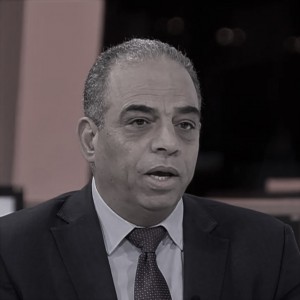
Sovereign Debt in the Arab Region: Between Sustainability and Fair Tax Policies - Ahmad Awad
Ahmad Awad

Sovereign Debt in the Arab Region: Between Sustainability and Fair Tax Policies - Ahmad Awad
The sovereign debt crisis in the Arab region is one of the top economic challenges troubling governments and societies alike. Public debt levels are increasing at an unprecedented rate, and many countries face significant difficulties in meeting their financial obligations without resorting to austerity measures and their impact on essential services that burdens the most vulnerable groups. This situation results from structural problems in public finance management and the increasing reliance on external and domestic borrowing as temporary solutions to escalating financial crises.
Sovereign debt sustainability entails the state’s ability to meet its financial obligations without harming the economy or infringing on citizens’ rights. However, it has become a challenging goal due to the sharp rise in debt levels in many Arab countries. According to IMF reports, debt service payments in some developing countries have reached record levels, consuming nearly 14 percent of total public revenues and exceeding what is spent on the health and education sectors combined.
Sovereign debt was one of the main discussion topics during the annual IMF and World Bank meetings held in Washington, DC, last October. There, ANND addressed this crisis and its effects on countries of the South, including Arab nations, along with other topics related to the sustainability of development financing. The discussions highlighted the austerity policies imposed as a condition for debt restructuring and their role in undermining social stability and weakening societies' ability to achieve the SDGs.
Austerity policies, which focus on reducing public spending to cover budget deficits, are often counterproductive. In many cases, they have reduced expenditure on social protection, which has increased poverty rates and social inequality. In some countries, such as Jordan and Lebanon, reducing financial allocations to essential sectors such as education and health has exacerbated social predicaments amid the economic pressures of regional and international crises.
The discussion of the sovereign debt crisis was not separate from the question of fair tax policies. The tax system in Arab countries is seen as unbalanced, relying heavily on indirect taxes such as sales tax, which burdens the poor and middle classes. In contrast, progressive taxes on wealth and high incomes are overlooked, which widens the gap between the rich and the poor and weakens governments' abilities to generate sufficient revenues without resorting to borrowing.
This problem was the focus of the meetings, as ANND called for adopting fairer tax systems based on the principle of progressivity.
Reforming the tax system in Arab countries can enhance local revenues and reduce reliance on loans with harsh conditions. Strengthening financial governance and combating corruption are also necessary steps to ensure the efficient use of public resources in a manner that serves the SDGs.
The challenges facing Arab countries are not limited to local policies but extend to regional and international influences. Armed conflicts and political instability in some countries reduce foreign investments and increase reliance on external borrowing on unfair terms. The unfair structure of the global economy exacerbates the crisis, as billions of dollars are transferred annually from the countries of the South to the developed countries in the form of interest on debt, which deepens the economic gap and burdens developing economies.
Independent experts and CSOs confronting unfair economic policies presented several proposals at the annual meetings to tackle the sovereign debt crisis, most notably concerning the need to cancel or reduce the debt burdens of the poorest countries, including that of this article's author. This measure could allow these countries to rearrange their development priorities and direct their resources to support education, health, and infrastructure. The idea of using IMF special drawing rights to provide liquidity to developing countries was also raised, along with proposals to buy back debt with joint financing between rich nations and international financial institutions.
Another notable solution was issuing an international agreement to manage debt on fair terms, ensuring debt sustainability and reducing dependence on major global economies. Such an agreement could contribute to restructuring debts to ensure the stability of developing economies and enhance their ability to achieve their development goals without threatening their economic and social stability.
Furthermore, Arab countries need to boost their investments in productive sectors, which would help reduce dependence on imports and external borrowing. Improving the business environment and increasing support for small and medium-sized enterprises could be vital to achieving sustainable economic growth, reducing financial burdens, and improving the ability of governments to fulfill their obligations to their citizens.
The Arab region's sovereign debt crisis is not just financial. It is a comprehensive challenge that affects economic and social policies. As the situation worsens, there is an urgent need to adopt bold and long-term strategies that focus on achieving tax justice, improving the efficiency of public resource management, and enhancing regional and international cooperation to find fair and sustainable solutions. If taken seriously, these steps could represent a turning point towards a more stable and just future for Arab countries and their people.
Recent publications

